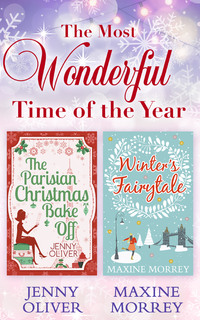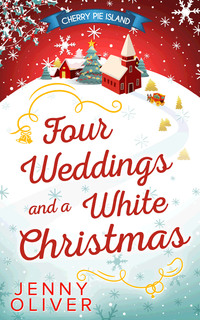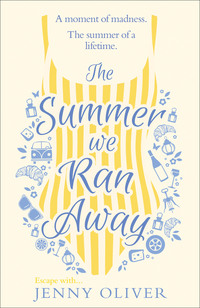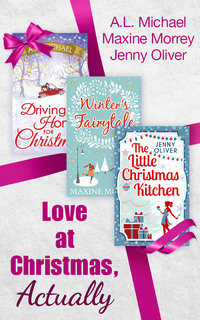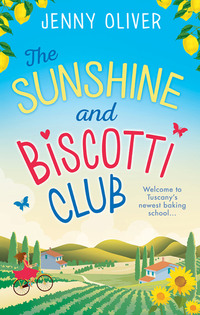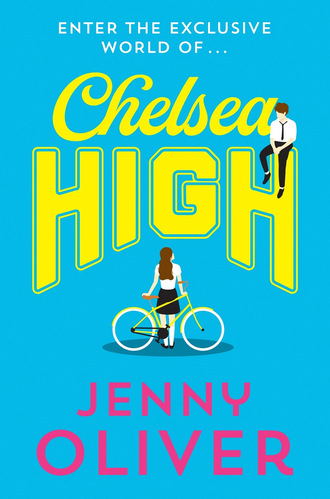
Chelsea High
‘“Yeah, maybe”?’ he repeated. ‘Case in point. My grandmother always says that one should be more succinct. Decisive. Get to the point. No “to be honest”s or “basically”s or “you know what I mean”s. I’m trying to wean myself unsuccessfully off them. Sloppy semantics, she calls it.’ He took his glasses off and gave them a clean. ‘I’m Daniel.’
‘Norah,’ I said.
‘Yes,’ he said. ‘With the dad embroiled in the Ponzi scheme.’
My delight immediately ebbed.
He went on, adjusting his glasses. ‘It’s a shame, because I actually quite liked the film. I saw it at the cinema. You weren’t bad in it. And you know . . .’ He paused. ‘See? “And you know” is completely unnecessary in the sentence. It was the first time I’d ever been the only person in the cinema.’
I bit my lip, embarrassed, and unsure whether to take what he was saying as a slight or compliment.
The image of that first screening of my dad’s film popped into my head. They erected a huge screen by the river, and everyone on the island sat out on fold-out chairs and picnic rugs. There was a bar in the corner serving hot dogs, fresh lemonade and beer. The film was a low-budget comedy-drama. It showed at a couple of the festivals to positive acclaim and had a limited cinema release; a trial run for the bigger, higher- budget films in the pipeline, but exciting nonetheless. I had a very small part in it, and had relished every last second of the filming, even the hours spent in make-up and the night shoots in the dark and wet, standing around for hours in big puffy coats so we didn’t get cold. At the island screening there was a curtain call, and as part of the cast I was up at the front taking a bow. My dad gave a speech, beaming at the thunderous applause. It was a time when everyone still thought he was a hero.
But I also remembered four months later having to Google the words ‘Ponzi scheme’. Discovering the two men who’d set up the production company – the McGinty brothers – had taken investment money off one load of people and then paid them back with money from another load of people, all to line their own pockets. My dad was the sucker the McGintys had picked to add credence to their fancy presentations, a guy these people clearly trusted with their lives as well as their life-savings. In retrospect, he was the obvious choice. His persuasive charm and popularity emanated as strongly as his unfulfilled, starry-eyed ambition to be a film-maker. Now it was apparent the big films were never going to be made, and the production company was just a sham. Borrow, borrow, borrow until there’s no one left to borrow from: that was how the scheme worked. Until all the people on the little island idyll had no more money left to give.
To Daniel, I found myself saying, ‘My dad had nothing to do with it.’
He gave me a look. ‘I never said he did.’
Behind us was the noise of the ponies’ hooves and the crack of the polo stick on the ball. The pervading smell was still of cut grass and sunshine. Daniel started to stroll along the edge of the field and beckoned for me to follow.
‘In my dad’s eyes, those films were bona fide,’ I said as I walked, one hand shielding my eyes from the sun. My instinctive need to defend him had become so automatic, I had started to pre-empt any accusations. There had been nothing more devastating than seeing the unrelenting optimism drain from my dad, replaced with a sad, greying fear. ‘He had nothing to do with the money side of things. He was as devastated as everyone else when, you know –’
But my lovely dad’s innocence clearly bored Daniel, who just held out his hands and said, ‘No need for a “you know” there. Do you see? Wasted words.’
Suddenly, we heard a scream from the polo field. Daniel stopped.
‘Oh god, what’s happened over there?’ he said.
I looked across the field, quite relieved at the change of subject, to where the noise of stick cracking ball had been replaced by high-pitched shouting.
‘Jesus, Coco! You’re insane!’ Emmeline was covering her eye with her hand.
‘That was so not my fault.’ Coco scowled. ‘You cut right across me.’
Emmeline swore, her expression contorted in pain. ‘My face, Coco. How could you smack me in the face and it not be your fault?’
The teacher blew her whistle and motioned for a halt in play. She shouted something to Coco, which was greeted with a slit-eyed pout, while gesturing for Emmeline to leave the field as she corralled the others.
Daniel jogged over. ‘Jesus Christ, look at your face,’ he said as he helped Emmeline slide down from her pony and took the reins. She had tentatively withdrawn her hand from the injury. As one of the grooms came over to take the pony and Daniel led Emmeline to the clubhouse chairs, he shouted back to where I was standing: ‘Norah, do you reckon you could get some ice?’
‘Erm, OK,’ I said, head filled with questions that clearly weren’t appropriate to ask as Emmeline winced through pain and tears. Like, did he mean from the kitchens? Would they wait here or were they going to follow me? As I half jogged back to the main building I found myself quite pleased to be assisting. There was a flutter of pleasure at having some useful connection to the water-haired Emmeline, especially in defiance of Coco.
But by the time I’d located the kitchens in the maze of corridors, battled with a reluctant dinner lady for a bag of ice and then navigated my way back to the field, out of breath, the whole polo landscape had changed. I stopped up short, panting to get my breath back. It was like nothing had happened, and the drama was over. Grooms were walking the ponies off the pitch, the girls were sitting on benches out the front of the clubhouse, pulling off their boots, raking back sweaty hair, chatting, laughing.
Rollo and Ezra had appeared along with their grinning sidekick Freddie, all of them mud-splattered from rugby. Ezra leaned against the wall, hunched over his phone. Rollo sat on the bench beside Daniel, long legs splayed out in front of him, lazily throwing and catching a rugby ball with Freddie who didn’t seem like the kind of person ever able to sit still. The ice dripped through the holes in the bottom of the plastic bag as I watched, frozen, too intimidated by the presence of the whole gang to step forward.
Coco was inspecting the bruise, lifting Emmeline’s chin to the light with her finger so she could get a better view of the purpling creation blossoming over Emmeline’s right eye. ‘I think you should be thanking me,’ she drawled. ‘It looks amazing. And your mum’s going to hate it.’
Emmeline pulled her head out of Coco’s grasp. ‘It really bloody hurts.’
‘Don’t be a baby,’ Coco said with a laugh.
The boys sniggered.
The icy water dripped to the concrete floor. I’d expected to return to Emmeline and Daniel alone, and for the injury to be more serious, more in need of ice. But right now that wasn’t the case at all, making a mockery of my keenness and effort.
I was on the verge of quietly tiptoeing away when Daniel saw me. ‘Emmeline, your ice,’ he said, gesturing in my direction.
I blushed as everyone turned to look.
Emmeline frowned, clearly surprised. ‘Thanks,’ she said, walking over and taking the bag. ‘That’s really kind.’
‘It’s fine,’ I said, wanting the moment over, feeling in their eyes like a lackey or a desperate hanger-on.
Emmeline reached into the plastic bag and took a couple of pieces of ice out, rubbing the cubes straight on to her face with a wince.
‘Jesus, Em, not like that.’ Coco stalked over and snatched the bag. She nudged Emmeline on to the bench and, tipping some water from Rollo’s water bottle on to a spare T-shirt, she heaped a handful of ice on to the cloth and wrapped it up to make a compress. They had their backs to me. ‘It smells like Ezra,’ said Emmeline.
Ezra glanced up from his phone. ‘Hey that’s my T-shirt.’
Coco said something that made Emmeline giggle. Ezra held his hands wide, aghast at the audacity of his T-shirt being used in such a way. Verity sashayed over to laugh at how silly Emmeline looked with the T-shirt on her face, while Daniel grinned as he sucked on an unused cube.
I was dismissed simply by their lack of acknowledgement. I had never felt so firmly at the bottom of the pecking order.
As I passed the stables and the grooms working on the polo ponies’ gleaming coats, I had to laugh. Not only did I come from a school where the idea of playing polo was laughable, I came from a school where the social structure was flat. There was no hierarchy; we all just sort of got on. Everyone was kind of friends with everyone because we had to be. We knew each other too well, each other’s families too well. We might not have been crazy about monosyllabic Amy Snyder and her weird boyfriend Jez who built robots in his basement, but we still said hi to them and their friends if they were in the Mulberry café because sometimes they were pretty funny to be around, and at the end of term Amy could be counted on to host a party on the wasteland at the back of her dad’s used-car dealership. It wasn’t the most glamorous of settings, but it was isolated and backed on to the river. They’d tied a rope swing to the remains of a broken bridge where you could plunge right out almost to the centre of the freezing water. Jez had built a barbecue out of an old oil drum and Amy’s dad turned a blind eye to the bike jumps we built, the bonfires and the music. We just all existed, together.
I could hear the sound of Coco’s laughter as I walked back through the little manicured courtyard, and had to fight the urge to turn round and watch them all strolling back to the main building. As a gang, they had a magnetism that made the other people furtively glance up or outright stare, jog over with a beaming grin or just be happy to follow in their wake.
My dad’s words from the previous evening, as our boat had spluttered down the Thames to its new fancy mooring, were playing like a mantra in my head. ‘Don’t worry, this won’t be forever.’ I had stood next to him as he steered the boat down river. Ahead of us lay a string of bridges: Barnes, Hammersmith, Putney. We ticked them off one by one. The water was darker there, meaner. Tidal. Ready to sweep us out to sea if we weren’t careful. Before that day our boat had never moved. It had lived quite happily in the silt and sludge on the banks of Mulberry Island, by a patch of weeds we called a garden with terracotta pots spilling with gnarled geraniums and dandelions. In among the flowers we put all the old knickknacks we fished out of the river, anything from dolls’ heads to dinosaurs, flashing roadwork lights, plastic pug dogs and round red floats. Once we’d even scooped up an urn of someone’s ashes, but we threw it straight back in again. But now there were no more willow trees and bramble-covered verges, just building after building blocking out the sky. Wandsworth, Battersea Bridge, Albert Bridge. The river banks were traffic now, cranes, adverts, restaurants, penthouses with wraparound views, and lights. Everywhere there were lights. And wealth. My dad had slung his arm over my shoulder as I stared back from where we had come and whispered with a crinkly-eyed smile, ‘Before you know it, Norah, we’ll be turning round and going back the other way. Fingers crossed the old boat can make it.’
As I walked back into the overbearing ornateness of the Chelsea High building, I wanted to go back right now. It was hard being invisible. It was hard being always on the defensive and trying to act like you didn’t care. It was hard having no phone, no contact with the outside world. And however much I pretended it wasn’t, it was hard suddenly finding yourself on the lowest rung on the ladder, hating yourself for wondering desperately what the view was like right up there at the top.
CHAPTER FOUR
When I got home to the boat my dad was hovering by the front door, clearly waiting for me to arrive. Odd. He was usually far too engrossed in something else to realise it was that time of day already. He jogged out on deck to greet me, still in his yellow shirt but now wearing his jeans, taking the weight of my bike as I hauled it up the gangplank steps. He seemed a bit jittery. Maybe excited that I was home. After all, it had been a day of lawyers and trial preparation.
‘Good day?’ he asked, arm outstretched to give me a hug. Grinning and without pausing for an answer he added, ‘Bet it was great, wasn’t it? Bet you really enjoyed it.’
‘It was OK,’ I said, slightly wary of his enthusiasm. I wondered if he was being deliberately upbeat.
‘Good, good,’ he said, brushing a bit of lint off my shoulder and tucking my hair behind my ear. ‘Good stuff.’
I flicked my hair back to exactly where it was. ‘What are you doing?’ I said.
‘Nothing, nothing. Can’t have you looking less than perfect, that’s all.’
I frowned. I always looked less than perfect. My dad had moved on to neatening up the pots of geraniums on our deck, dead-heading as he waited for me to lock my bike to the guardrail. I remembered what I had been meaning to ask him since my run-in with Mr Watts that morning. ‘Dad, did you know someone called Watts when you went to school?’
‘Sorry?’ He seemed more focused on ushering me inside than listening.
‘Watts?’ I repeated.
‘What?’
‘No, a person. Watts!’ I laughed, bashing him on the shoulder.
He sniggered at his own mistake, then ran his hand through his hair, thinking. ‘Oh, Wattsy. Oh god, we had some fun with Wattsy,’ he said, then made a guilty face. ‘Maybe too much fun. Not my finest hour. Probably a bit brutal. Don’t tell me he’s there?’
I raised a brow. ‘He teaches me Maths.’
My dad made a face. ‘Sorry, kid.’ He held the door wide for me and then, with his previous nervy distraction, said, ‘Come on, in we go.’
As you walk down the steps into our boat you can see straight through into the kitchen with its log furnace and island unit of colourful tiles. Pots and pans hang from a rack on the ceiling along with a big plait of garlic. The lounge area is in front of the kitchen, but shielded from the front door by a bookcase to make it cosy.
My mum was standing by the kitchen counter, watching from a distance as I came down the narrow entrance corridor. The moment I saw her, I knew something wasn’t right. She had changed her clothes. She looked stark in a black sweater and skinny jeans. She had simple black sandals on and her make-up was flawless. I’d never seen my mum without bright red lips unless it was very early in the morning, and even then she was usually up and ready before me. But she didn’t usually look quite as painted as she did right now, with flicks of blue eyeliner and perfectly blended sweeps of blush. I frowned. It was like she was armoured up.
I chucked my bag into the little cupboard by the door where we kept our shoes. There was a different smell on the boat. Heavy and thick. It was hard to tell if it was nice or not, like walking into a florist.
‘Norah, honey, guess who’s here to see us?’ My dad said, hand on my shoulder, steering me round the bookcase. He was sweating slightly; I could see the beads on his brow.
As I walked into the lounge, two people stood up from the sofa. Two beige people. Like two butter toffees.
‘It’s Granny and Grandpa!’ my dad said, as if we holidayed with them every year.
My eyes widened, not quite sure what to do. All I’d wanted was to collapse in front of the TV with a bowl of Honey Monster Puffs. I swallowed, forcing my mouth into a semblance of a smile.
‘Hi,’ I said.
Now one of the toffees was hugging me in her overpowering flower-smell hug, her powdery cheek up against mine.
‘Oh, my darling,’ she said, almost breathless.
The other toffee had his hand out for me to shake. Rough and cool and deep-grooved. ‘Norah,’ he said, as if he wasn’t quite sure of my name. ‘Nice to meet you.’
‘You too, Sir,’ I said, a hangover from school.
The old man laughed, adjusting his chequered tie. ‘No need for sir.’
They looked so out of place among our things. Their neatness made our comfy old sofa with its patterned throws knitted by my mum seem painfully shabby.
My dad laughed, awkward and on edge. ‘Tea?’ he said. ‘Let’s have tea.’
I sat down on the arm of the comfy chair in the corner by the sofa, watching as my dad nervously shuffled about in the kitchen. This wasn’t the dad I knew. The one who sang in the Mulberry Island band while strumming his banjo. Who jumped up on the open-mic comedy nights and brought the house down with his off-the-cuff one-man show. Who once lazed on a frayed sunlounger and recounted the story of the time he almost made it big in the movies. ‘I was this close, Norah, this close to getting the main part,’ he had said, his fingers a millimetre apart, staring up at the clouds. ‘The movie was going to be the next Laurel and Hardy; it was going to be massive. It had big studio backing. Big buzz. Big everything. Name-in-lights stuff. I would have been a star, Norah. It was the dream. It was my bloody dream. Course then the director walked and the whole thing collapsed like a stack of cards. It was all over like that.’ He had swiped his finger across his neck. ‘One minute I was gonna be as famous as – who’s the most famous person you know?’ He had lain clicking his fingers, thinking, and when I didn’t answer quick enough he’d said, ‘More famous than that person. I was going to be the most famous actor in the world and the next minute I was flat in the dirt.’ Then, as if the memory of that lost chance of stardom was too painful, he had jumped up and slipped straight into a character and we had played the double-act game we always played. We were Daddy Warbucks and Annie. ET and Elliott. Marvelling at our own theatrical skill.
I know you’re not meant to have a favourite parent. And I don’t, not really. But if I had to be stuck on a desert island with one of them, it would be my dad every time.
‘And we’re hoping we might see you a little more regularly,’ my grandfather was saying, reaching forward for a gingernut that my dad had put on a plate. Never in my life had I seen a biscuit on a plate on this boat. More often they were demolished straight from the pack as soon as they were opened.
Everyone was looking at me. I was flitting in and out of paying attention.
‘Yes,’ I said, which seemed to appease most people, except my mother who pursed her red lips together where she stood glued to the edge of the kitchen counter, wiping down the surface that was clearly already clean.
‘We thought –’ My grandmother was looking at my grandfather, her white hair swept back in flouncy waves, her eyes darting uncertainly behind pale pink wire spectacles. ‘Every Sunday.’
‘Don’t do this,’ Mum said, chucking the cleaning cloth into the sink.
My dad shifted on the spindly wooden chair he’d brought over from the kitchen table to perch on, proffering the biscuits as a distraction.
‘Do what exactly, Lois?’ my grandfather said.
My mum screwed up the top of the gingernut packet my dad had left on the counter and put it in the biscuit tin, clearly annoyed. ‘Regiment everything.’
My grandfather scoffed.
I focused on the biscuit I was nibbling as awkwardness radiated through the air.
‘You can spend time together,’ my mum went on, as if she hadn’t heard him. ‘But don’t timetable it. That’s not how we work.’
The old man raised his bushy grey brows and sat back. The sofa was squashier and deeper than it appeared, and he flopped further into it that he was expecting.
Some grumbling ensued while my grandmother propped his back up with more cushions, and I tried really hard not to snigger. My dad was making big eyes at my mum to make her say something conciliatory. She shook her head and carried on tidying up the kitchen.
After a few seconds of awkward mutterings all round, my mum finally said, ‘OK, we can try for Sundays.’ She put the milk back in the fridge. ‘Just let’s not set it in stone.’
My dad clapped his hands as if that was that sorted. The toffees looked at each other, dubious as to whether they’d had a defeat or victory. But my grandfather nodded, pulling the sleeves of his shirt down so the cuffs edged neatly out of his jacket, making up for the momentary lack of order.
My grandmother edged forward on her seat and, smiling at me like I was five, said, ‘And how was school, Norah? We’re so delighted that you’re following in the family footsteps at Chelsea High. You know, not a single generation has missed out since it was founded in the seventeenth century.’
‘I didn’t know that,’ I said, trying to mirror her enthusiasm.
‘Did you enjoy your first day?’ she asked, her hands clasped together so I could see all the diamonds dazzling on her long, thin fingers.
My mouth stretched into a polite smile as I pondered the question. How was school? Mean. Rich. Unreal. I thought of the polo and evil Mr Watts. Then I remembered the look on Ezra’s face at my ugly, chewed biro and laughed slightly when I said, ‘It was fine.’
My grandparents shared a look.
‘Did something funny happen?’ my grandmother said, leaning in, keen for the joke, but also unsure.
‘No,’ I said. Looking her straight in the wrinkly eye. Like hell they would be included by me. They weren’t having that as well as my Sundays, my dad’s weak acquiescence and my mum’s bad temper. ‘Nothing at all.’
*
My bedroom has always been my favourite room on the boat. It’s on the second floor, along from my parents’ bedroom, and it’s tiny – the exact size of a single bed – but magical. Like living in a cocoon. All the walls are wood-clad and bare except for a couple of shelves cluttered with my favourite knickknacks. My clothes are all folded in a cupboard under the bed. But the best thing is the giant window at the head of my bed that stretches across the entire wall, so as I’m falling to sleep I can stare out at the water and the stars. My parents’ room is much bigger, but I wouldn’t swap mine for the world.
In bed that night, however, I wasn’t looking out at anything. Instead, I was sitting at the other end of my bed with my head pressed up against the wall, listening to my parents rowing under their breath.
‘They’re paying all that money, Lois. For the lawyers, the school, this mooring. It’s fair enough that they expect something in return,’ said my dad, voice hushed and emphatic.
I thought of my grandmother’s strained smile as she sipped her tea, her pearls and her neat gold-buckled shoes, and I thought: This is your fault. Both of you, I added, throwing in the grandfather as well: his beige jacket, his brown striped shirt and navy-checked tie with the crest of some club or other embroidered in the centre. They were the reason we’d had to up-sticks and re-moor. They had paid for this new berth, among the best in London apparently, but what good was that when out of my bedroom window, where once I had seen nothing but blue sky, the view was now of a sleek minimalist grey barge where a woman in a bright pink polo shirt was always vacuuming? It was their money paying for the flashy lawyer that we didn’t really need, but they’d put their collective foot down. The family name had been dragged through the mud enough. I had heard my dad mimic my grandfather when he thought I wasn’t listening, ‘By god, son, I sit in the House of Lords.’ And now they were responsible for my parents – who never argued – arguing.
My mum sighed softly. ‘I don’t want them having Norah. I don’t want their influence in her life.’
‘I know, I know. But what other choice do we have. Your parents?’ Dad said, tone almost mocking.
My mum made a noise somewhere between a scoff and sigh. I’d Googled her family, after everything had come out about my dad. Under normal circumstances I’d have asked her outright, but everyone was too distracted, too brittle and wound up. She’d always said she’d never got on that well with them, that they lived in Australia and called once in a blue moon – always when I was at school. They weren’t big on family, she’d said. According to Google, however, their last address was a super-yacht in Cannes. There was a grainy newspaper shot of a woman who looked remarkably like my mum, just fractionally older: face taut, lips plumped, lounging on deck in a gold swimsuit. She had a cocktail in one hand and with her other was snapping an angry reciprocal photo of the paparazzi stalking her. I had just glimpsed the headline, ‘Camilla Wentworth celebrates fifth divorce in style!’ when the whole messaging debacle kicked off and my mum confiscated my phone. Further investigation was on my mental to-do list for the future. I wasn’t sure I needed any more surprises about my extended family at the moment.



